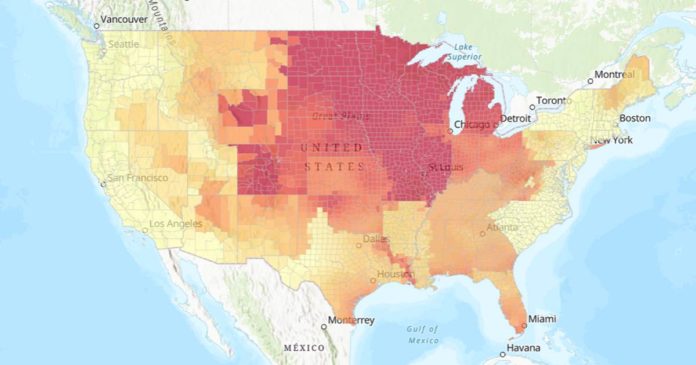Cannabis can suck large quantities of carbon dioxide from the atmosphere as it grows, but the way it’s grown can have a major negative impact on its overall carbon emissions credibility.
A new study out of Colorado State University takes a deep dive into the burgeoning industry’s carbon footprint, and the news isn’t good.
The research indicates U.S. indoor cannabis cultivation results in life-cycle greenhouse gas emissions of between 2,283 and 5,184 kilograms of carbon dioxide per kilogram of dried flower.
So, how does this stack up against outdoor and greenhouse cultivation? The researchers quote New Frontier Data’s 2018 Cannabis Energy Report that suggests 22.7 kilograms for outdoor and 326.6 kilograms for greenhouse grows.
The indoor-grow emissions are largely associated with electricity and natural gas consumption from environmental control equipment such as high-intensity grow lights and HVAC, and also from carbon dioxide supplied to the plants to accelerate their growth.
High energy consumption is particularly apparent in places such as Colorado, where many cultivation operations are required to be in close proximity to retail storefronts. The researchers note electricity use associated with cannabis grew from 1% to 4% of Denver’s total electricity consumption between 2013 and 2018.
From their research, the CSU team developed a GIS map that allows users find emissions estimates throughout the USA, right down to a local county area.
The study, led by graduate student Hailey Summers, has been published in Nature Sustainability.
The findings will give pause for thought to cannabis cultivation operations and perhaps inspire them to look to more more eco-friendly inputs such as renewable energy. As well as environmental benefits, there can be financial gains to be made with a focus on energy efficiency.
On a related note and according to this document, one hectare of industrial hemp can absorb 22 tonnes of CO2 per hectare. With two crops possible a year – in some places even more – carbon sequestration is another one of industrial hemp’s many positive attributes that is particularly good for our ailing planet.


